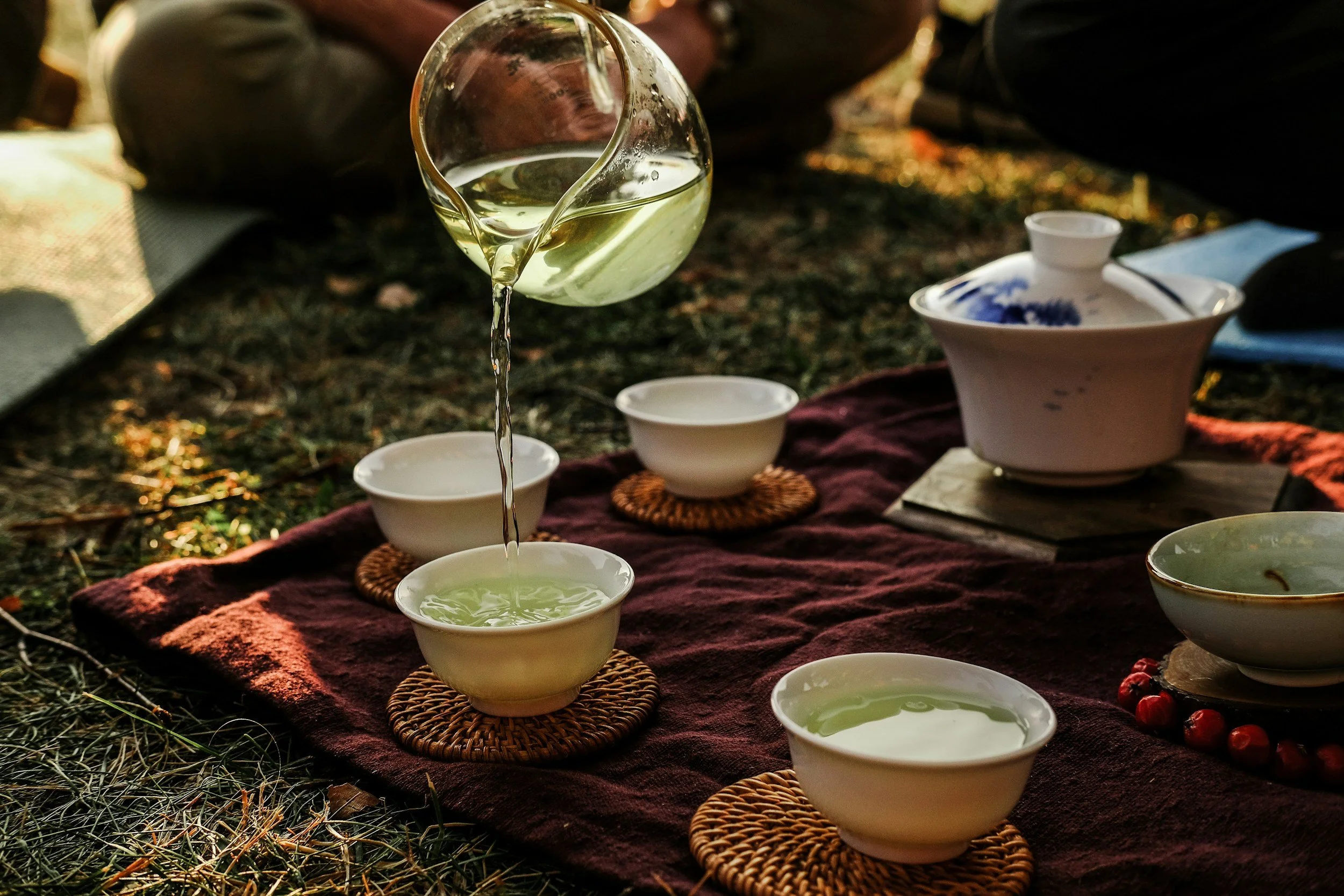Savoring Green Tea: Embracing Benefits and Easing Nausea
When I first began exploring Chinese Medicine, green tea immediately came to mind. Having grown up drinking black tea, discovering green tea felt like the perfect, refreshing step toward a healthier lifestyle! And it’s what I have every morning as a TCM Practitioner.
Now that I’ve been in the green tea club for over a decade, I learned there all Green Tea is not the same.
Green tea is attractive because of its health benefits and soothing qualities. However, I find that some individuals may experience nausea after having a cup. Let's explore why many are choosing green tea over coffee, learn about its health advantages, and discuss how to enjoy this delightful beverage without discomfort!!
Why Choose Green Tea Over Coffee?
Many people are making the switch from coffee to green tea for various reasons:
Gentle Caffeine Boost: Green tea contains less caffeine than coffee, providing a milder energy lift without the jitters.
Rich in Antioxidants: Packed with catechins like EGCG, green tea offers potent antioxidant properties that support overall health. (time.com)
Potential Health Benefits: Regular consumption of green tea has been linked to improved heart health, enhanced cognitive function, and better weight management. (time.com)
Understanding Green Tea-Induced Nausea
While green tea is celebrated for its benefits, some individuals may experience nausea after drinking it. This discomfort can be attributed to:
Tannins: These compounds can increase stomach acid, leading to digestive discomfort or nausea, especially when consumed on an empty stomach.
Caffeine Sensitivity: Even the modest caffeine content in green tea can cause nausea in those sensitive to it.
Tips to Enjoy Green Tea Without Nausea
If you love green tea but find it unsettles your stomach, consider these strategies:
Avoid Drinking on an Empty Stomach: Consume green tea after meals to minimize the likelihood of nausea.
Opt for High-Quality Tea: Lower-quality teas may contain higher tannin levels. Choosing premium green teas can reduce the chance of discomfort.
**Try different kinds of green tea. If you find that one isn’t working for you, ask a TCM expert to help guide you in deciding what kind of green tea is best for your TCM Constitution!
Mind the Brewing Time: Steeping green tea for too long can increase its tannin content. Aim for a shorter brewing time to lessen potential stomach irritation.
Add a Splash of Milk or Lemon: These additions can neutralize tannins, making the tea gentler on your stomach.
Monitor Your Intake: Moderation is key. Start with smaller amounts and observe how your body responds before increasing consumption.
A TCM Perspective
In TCM, green tea is considered to have a "cooling" nature, which can help clear heat and toxins from the body. (pingminghealth.com)
However, this cooling property may also contribute to digestive discomfort, such as nausea, especially when green tea is consumed on an empty stomach or by individuals with a "cold" digestive system.
To mitigate these effects and enjoy green tea without discomfort, consider the following TCM-inspired tips:
Warm Preparation: Brew green tea with water at an appropriate temperature to avoid excessive cooling of the digestive system.
Add Warming Ingredients: Incorporate warming elements like ginger into your green tea to balance its cooling nature and support digestion.
Moderate Consumption: Be mindful of the quantity of green tea you consume, especially if you have a sensitive stomach or a constitution prone to coldness.
Try aligning your green tea habits with TCM principles so you can enjoy its numerous health benefits while minimizing the risk of nausea or other digestive issues!
Yummy Green Tea!
Green tea is a delightful beverage offering numerous health benefits, making it a great alternative to coffee.
If you experience nausea after drinking green tea, implementing the above tips can help you enjoy its advantages without discomfort. Always listen to your body and adjust your habits accordingly to make your tea-drinking experience both enjoyable and beneficial!
Disclaimer: This article is for informational purposes only and does not substitute professional medical advice. If you have concerns about your diet or health, please consult a healthcare professional.
Note: The information provided in this article is sourced from reputable publications and studies on green tea and its effects.




